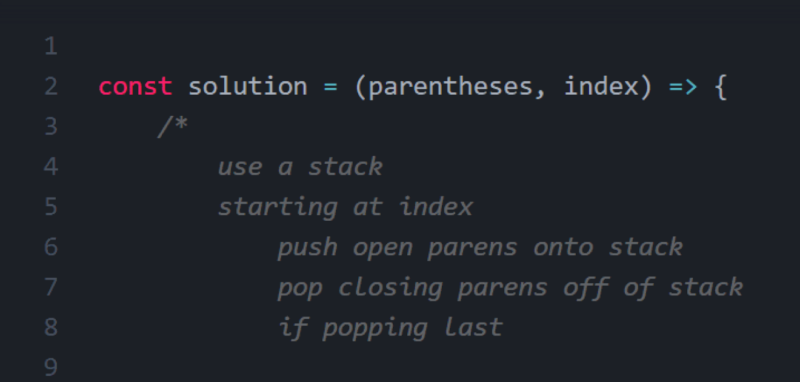Tech skill
Rust Skills
All about Rust
Why employ Rust skills? Rust is a modern, systems-level programming language known for its focus on safety, performance, and concurrency. Developed by Mozilla programmer Graydon Hoare in the early 2000s as a side project, Rust provides a reliable and efficient alternative to languages like C, C++, and Go. Like Go, it aims to provide memory safety, but unlike Go it does this without employing garbage collection. By not employing garbage collection, Rust can be opened up to applications like real-time computing and kernel development where deterministic execution time and process size are of paramount importance.
Rust achieves this through language constructs. This gives the programmer explicit means of describing how allocated memory is shared between parts of the code. This allows the compiler to determine when the programmer has created the possibility of a memory leak.
History of Rust
Hoare was inspired by necessity after learning his apartment building’s elevator was out of service again because of a software crash. Hoare lived on the 21st floor. Much like The Big Bang Theory‘s Sheldon and Leonard, he was capable of doing something to resolve it. Unlike them, he did it.
Hoare knew these software crashes commonly occur because of issues with how the program uses memory. Software in machines such as elevators in 2006 were generally written in C++ or C. These were used because software developers could use it to write code quickly while staying compact.
Unfortunately, these languages were also vulnerable to memory bugs, or errors that could trigger a crash. According to the MIT Technology Review, Microsoft estimates 70% of vulnerabilities in its code come from memory errors from code written in C or C++.
Hoare named his new language ‘Rust,’ after fungi “over-engineered for survival.” His desire to write small but fast code without memory bugs became one of the most popular computer languages with coders and companies alike. Dropbox, Cloudflare, Discord, Microsoft, and Amazon have used it. Hoare turned over his project in 2013 to other engineers, including a Mozilla core team.
Overall, Rust has gained popularity among developers for its combination of performance, safety, and expressive syntax. This makes it well-suited for systems programming, game development, web services, and more.
Find Rust Developers
What to use Rust for
Rust offers a wide range of capabilities and features, making Rust skills suitable for various application development scenarios.
Here are some key features:
- Memory Safety: Rust’s ownership system ensures memory safety without the need for a garbage collector, preventing common bugs like null pointer dereferencing and memory leaks.
- Concurrency: Rust has built-in support for concurrent programming through its ownership and borrowing model, allowing multiple threads to access data safely.
- Performance: Rust is designed to offer performance comparable to low-level languages like C and C++, thanks to its zero-cost abstractions and emphasis on control over system resources.
- Pattern Matching: Rust features powerful pattern matching capabilities, making it easier to write expressive and concise code for tasks like error handling and data manipulation.
- Immutable by Default: Variables in Rust are immutable by default, promoting safer code and reducing the risk of unintended side effects.
- Trait-based Generics: Rust’s generic system, based on traits, allows for code reuse and abstraction without sacrificing performance or safety.
Here are some key applications of Rust:
Systems Programming
Companies find Rust is great for systems programming tasks, including operating systems, device drivers, game engines, and other low-level software components. With its emphasis on memory safety and performance, Rust skills enable developers to write robust and efficient systems-level code that powers critical infrastructure and applications.
Web Development
Programmers increasingly use Rust for web development tasks, including building web servers, APIs, and backend services. With frameworks like Rocket and Actix, Rust developers can create fast, scalable, and secure web applications that handle high concurrency and throughput with ease.
Embedded Development
Rust is well-suited for embedded development tasks, including programming microcontrollers, IoT devices, and embedded systems. With its minimal runtime and efficient resource utilization, Rust enables developers to build reliable and performant software for resource-constrained environments.
Game Development
Rust is gaining traction in the game development industry for building game engines, tools, and libraries. With frameworks like Amethyst and Ggez, Rust developers create cross-platform games with high performance, low latency, and a strong emphasis on safety and correctness.
Blockchain and Cryptography
Developers use Rust in the blockchain and cryptography space for building blockchain protocols, cryptocurrency wallets, and cryptographic libraries. With its focus on security and reliability, Rust fosters robust and tamper-resistant software for handling sensitive data and transactions.
Get new data for Software Engineer Trends in 2024, including Tech Skills and Software Engineer Specializations.
What is a Rust developer?
Here’s what it means to be a Rust developer:
- Proficiency in Rust: A Rust developer is fluent in writing Rust code, including understanding Rust’s ownership model, borrowing rules, and concurrency primitives. They are familiar with Rust’s standard library and ecosystem of crates (packages) and know how to leverage them effectively in their projects.
- Systems Programming Skills: Rust developers have expertise in systems programming concepts and techniques, including memory management, concurrency, low-level programming, and performance optimization. They understand the internals of computer systems and know how to write efficient and reliable code that interacts closely with hardware and operating systems.
- Embedded Development Skills: Rust developers have skills in embedded development using Rust’s support for bare-metal programming and microcontroller platforms. They understand embedded systems architecture, device drivers, and real-time constraints, and know how to write low-level firmware and drivers in Rust for embedded devices.
- Security and Reliability: Rust developers prioritize security and reliability in their code, leveraging Rust’s memory safety guarantees and type system to prevent common programming errors and vulnerabilities. They follow best practices for writing secure and robust software, including input validation, error handling, and defensive programming.
As we look ahead to 2024, the demand for Rust developers continues, requiring new skills and capabilities to stay ahead of the curve. Here are some of the most important skills for Rust developers in 2024:
- Asynchronous Programming: Rust developers need to have skills in asynchronous programming and non-blocking I/O using Rust’s async/await syntax and runtime. They should understand the principles of asynchronous programming. Such principles include futures, tasks, and event loops. They should also know how to write efficient and scalable async code in Rust.
- Cross-Platform Development: Rust developers should have skills in cross-platform development using Rust’s support for targeting multiple platforms, including desktop, mobile, web, and embedded. They should be familiar with tools like cargo (Rust’s package manager) and rustup (Rust’s toolchain manager) for managing dependencies and building cross-platform projects.
- Performance Optimization: Rust developers need skills in performance optimization techniques to improve Rust code’s speed and efficiency. They should understand profiling tools like cargo-profiler and flamegraph for identifying performance bottlenecks, and know how to apply optimization techniques like loop unrolling, SIMD vectorization, and memory layout optimization to achieve maximum performance.
- DevOps and CI/CD: Rust developers should have skills in DevOps practices and tools for automating the software development lifecycle. These include continuous integration, continuous delivery, and continuous deployment (CI/CD). In addition, they should be familiar with tools like GitHub Actions, GitLab CI/CD, and Travis CI. These automate build, test, and deployment processes in Rust projects.
- Advanced Rust Features: Rust developers need to have a deep understanding of advanced Rust features and concepts. This includes macros, traits, generics, lifetimes, and unsafe code. They should know how to use these features effectively to write expressive, idiomatic, and performant Rust code that follows best practices and standards.
Hiring Rust developers can bring numerous benefits to your organization:
- Performance and Efficiency: Rust developers can build high-performance and efficient software that meets the demands of modern computing environments. This includes web servers, embedded systems, and game engines.
- Safety and Reliability: Rust developers prioritize safety and reliability in their code. They leverage Rust’s strong type system and ownership model to prevent memory safety vulnerabilities and data races.
- Cross-Platform Compatibility: Rust developers can target multiple platforms with a single codebase, including desktop, mobile, web, and embedded, allowing you to reach a broader audience and maximize your market reach.
Looking for candidates skilled in Rust? Technical assessments are a multi-pronged solution. They allow you to streamline the hiring process and reduce bias with tech skill-focused benchmarks.
Hired Assessments offers a library of hundreds of questions and customizable coding challenge campaigns tailored to technical preferences. Centralize and standardize your evaluation process as you surface top talent with specific, hard-to-find skills.
Finally, find out how Mastercard and Axon used Hired Assessments to vet top candidates.
How to find a tech job using Rust skills
Rust resources
Check out our partner resources to continue sharpening your Rust skills.
Hired profiles help developers showcase their top tech skills
Hired is completely free, from start to finish for job searchers. As a tech recruitment marketplace, we help match up employers with actively looking and qualified tech talent. For more, check out our jobseekers page and job search resources.
After their profile is approved to go live on the Hired platform, jobseekers may optimize their profiles with tech skills assessment badges. Candidates may take various assessments including Programming Skills, Full Stack, Backend, Frontend, iOS, Android, Debugging, DevOps Generalist, and DevOps AWS.
Once they pass, the badge automatically appears on their profile, increasing the chance of an interview request.
Resources you’ll love

How to Use Coding Challenge Events to Build Tech Talent Pipeline
About this eBook Today’s recruiting and hiring teams face multiple challenges, from low brand...

Need A Technical Assessments Do-Over? How To Assess Tech Skills
Technical interview alternatives for better skill-based hiring outcomes In today’s...

Bold Predictions & Benchmarks: Master Tech Hiring in 2024 (VIDEO)
What do industry experts predict for tech recruitment this year? In this on-demand webinar, you’ll...
